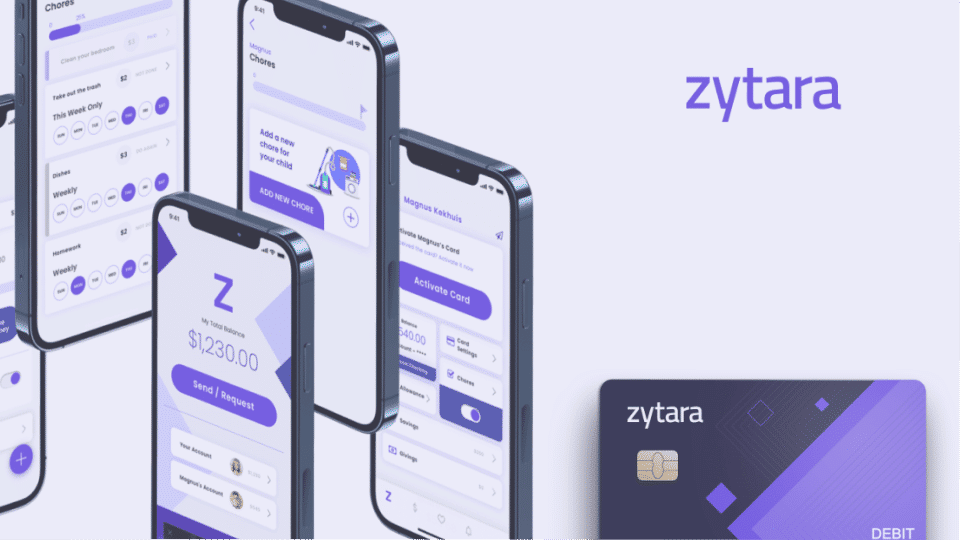What Is a "Super Application"?
In recent years, large international companies from various industries have created new online platforms for their users called Super Apps. Super Apps differ from a common application by the presence of an ecosystem in which several functions from finance, leisure, or lifestyle are combined at once. Grocery delivery, money orders, concert tickets, and taxis can now be accommodated in one place.
The term Super App was proposed in 2010 by the founder of BlackBerry, Mike Lazaridis. By his definition, a Super App is a closed ecosystem of many applications that people can use every day, where and when they need it. BlackBerry's Super App failed due to a failed monetization model and a general loss of market share by the company's gadgets. The modern, coolest, and most sophisticated Super Apps, WeChat, and Alipay, not only destroyed the concept of a closed ecosystem but also became almost equal to the passport in importance for their users.
Of course, a Super App is a convenient form of aggregation of mobile applications, where everything is at hand at once. However, the question of "peaceful coexistence" of several Super Apps on our smartphones that work with our personal data and general information security remains open. It's simple: the more aspects of life are concentrated in "one hand" (one device, one application), the higher the risks are.
Advantages of Super Apps
Many companies are already using Super Apps or are about to start using them, and there are good reasons for this. Super Apps have many benefits that make them a great alternative to conventional applications.
1. The volume of products and data
Lots of products and data flow through such applications. They are the foundation for building a highly personalized financial, service, and trading ecosystem around a specific user.
2. Development costs and other financial costs
Super Applications require significantly less financial costs. Most of the mini-applications inside the Super App are developed through integrations with companies that intend to do business with a large user base. Super Apps have a platform-based approach to product scaling and create space for integration.
3. Easy and fast onboarding
Super Apps also simplify the onboarding process for new customers and reduce analytics costs. It is also easier for a Super App to attract and retain users.
4. Faster and less risky product launches
You already have an audience to promote to, as well as a wealth of data to help you shape the right offer and send it to the right people at the right time. There is a synergistic effect from the many products offered.
5. Reduced product ownership and development costs
Most "mini-applications" within "Super Applications" are created by integration with companies that want to do business with a large user base. In fact, Super Apps open up space for integration and take a platform-based approach to scaling products.
Disadvantages of SuperApps
Unfortunately, despite the obvious advantages of this approach, Super Applications have several disadvantages.
1. Personal data security
Super Applications need a huge storage for digital data. If these repositories are compromised, all user inputs and outputs could be compromised. Attackers can easily obtain the personal data of users—transaction histories, contacts, payment card details, contacts, favorite locations, and much more.
2. Super accurate ads for users
Everyone understands that Super Apps are a great place to target your ads. The data from all the gadgets that the user uses gives a clear idea of the user's interests, events, income level, and even when the user is more likely to open pop-up windows. And in this situation, users become hostages of this super accurate ad.
3. Internet connection
Super Applications work exclusively when the internet connection is turned on.
Main Reasons for Super App Success
What is the superpower of such applications? This question remains relevant. First, you need to understand what unites the Super Apps. These applications combine services, magically taking the user away from the vast number of separate applications that take up space on their mobile devices and laptops. In addition, why save a large number of passwords for each application separately and browse the application library to find the one you need at the moment when you can use one application where all this data is combined? This is the main question that large companies are asking today in order to gain a larger market space.
There are many reasons why giants such as Amazon, Facebook, and Google are striving to create universal portals that connect different services. It is convenient for both the user and the business. For users, it is the ability to solve various problems using one application. In practice, this also means fewer registration and login problems.
For business owners, this is a clear cut in the costs of developing and maintaining the application in the future. Launching a Super Application requires fewer development team resources and also minimizes the number of possible problems that arise during the development of multiple applications. The result is more audience reach, who are more likely to make in-app purchases with less effort.
But the most weighty argument for the success of these applications is the "all-in-one" process itself. Creating a one-size-fits-all space for everything the modern user needs is sure to succeed. With the right strategy, business plan, and a solid development team, your success is only a matter of time.
Examples of the Most Successful Super Apps

In some regions of the world, Super Applications play a subtle but important role in people's lives. For example, one must remember that less than 30% of Asians have bank accounts, while the rest simply do not. This misunderstanding is corrected by WeChat, under which many companies and services are tuned. That is, you can buy and pay directly on the messenger. The statistics do not deceive because more than a billion transactions pass through WeChat Pay every month. The payment method, like that of Alibaba's Chinese payment system Alipay, is via a QR code.
Chinese WeChat is not the only successful case. For example, in Japan, the Line messenger has become an excellent Super App. Outside of Asia, there are also many successful Super Apps. Uber can be considered the largest Super App in the United States. It allows you to call a taxi and car-sharing, as well as order goods and food. The company also has the UberMoney payment service, as well as Uber Wallet, to which customers, drivers, and couriers are connected. Google Maps is also actively developing; they make it possible, among other things, to order food, book hotels or tables in restaurants, or call a taxi.
Facebook and Airbnb have been on the road to building Super Apps. Facebook wants to develop in the area of services for business, and Airbnb wants to turn from an accommodation booking service into the largest travel platform. Projects from Latin America, such as OMNi and Rappi, are also of interest. OMNi is a FinTech startup that allows users to make transfers between their contacts and, for example, pay using a QR code. Rappi, on the other hand, has grown quickly from a small food delivery startup to one of the largest multipurpose digital platforms in the region, with a valuation of $3.5 billion.
The Future of Super Applications
A Super Application is beneficial for large companies with many divisions for promoting their business. Large companies choose a strategy of synergy between the different divisions. Most of the users are attracted by services for which there is a good demand. This allows less popular services to be promoted at the same time.
Based on information from various services, the company collects extensive data about a person, which allows it to interact more effectively with its audience. Personalization is a big advantage of Super Apps.
Super Apps are often created through partnerships. Their format facilitates cooperation between small companies and large corporations and on terms that are beneficial for both parties. Large companies are interested in the low prices of the services provided by small players. But the latter, thanks to partnerships with large companies, get new clients.
Are Super Apps a dead end? The fact is that the most significant transformation of the way we consume services was the revolution of interaction with the smartphone. And it is very likely that the revolution is brewing again. Siri, Google, and Alice are the images of the future that hint at how the interaction will be carried out. If you look at the changes for developers that Apple showcased in 2020 (SiriKit), you can understand how the very essence of working with application interfaces will change in the future—a mixture of a voice assistant, quick buttons, and application elements during communication. Perhaps this will become "the same" as the first Super App. Time will show.
Further development emphasis will have four vectors: taxi, food delivery, online retail, and FinTech.
What problems can arise when developing Super Applications?
The key problems will be the emergence of large ‘‘Supers’’ where owners can test all their sites, services, and applications, as well as the use of Super Apps by the company, which can lead to the creation of their own settlements, currencies, and financial services—lending, depositing, insurance, commissions.
Key Elements to Super Apps

An application can only move to the "Super" category if, in reality, it will be that way for all users. Such applications must follow market trends and also take into account the characteristics the user expects. To do this, such companies should follow three key rules:
1. Inclusiveness. The main rule of Super Apps should be constant access to the application. This means that such a company is blurring the boundaries between the physical world and the digital. If you can remove all the barriers to inclusion, you can achieve a better user experience. This is an important factor to be considered by Super Apps.
2. Social responsibility. Many online businesses can affect the quality of life not only by what they do but also by how they do it. Let's take the example of transportation services. Does your service contribute to global warming, or do you exclusively use eco-friendly vehicles such as electric cars? Does your Super App support waste reduction by using biodegradable packaging materials?
3. User data security. Some regions such as Europe, the United States, and Canada have stricter laws regarding the protection of user data. As you already understood from the article, data is the basis of Super Apps. That is why, when developing such an application, it is very important to approach confidentiality with the utmost responsibility in order to prevent fraud and other attacks by intruders on the users’ privacy.
Super Application Development
The development of a Super Application is a very difficult task for a business because it requires a high technology level. It should not only have the necessary set of services that are provided to consumers through a mobile application but also have a technological platform capable of ensuring its operation.
It's harder for a company to build an ecosystem than a single app. When working on Super Apps, the load on the entire product team increases, so managers have to manage projects with different functionality and target audiences. Designers have to think over the interface of the mini-app so that it does not stand out against the background of the main application. Developers have to organize the technical side of the issue: how third-party programmers will create services inside the Super App to optimize its work and minimize disruptions.
The Super App is the packaging for the ecosystem. Accordingly, creating a Super App makes sense for companies that develop as ecosystems. Ecosystems are created based on the high-frequency needs of users. In B2C and C2C segments, the service is used daily or several times a week. For B2B, there may be a frequency of once every two weeks and the rarest, once a month. The higher the frequency of use of a digital product, the more likely it is that a popular Super App can be built on its basis.
Practice proves that Super Apps appear and successfully exist based on instant messengers (WeChat), social networks (Facebook), financial services, and delivery services (Gojek, Grab).
A Retail Super App can only be launched after the company builds the ecosystem. It will not work to build a Super App outright because its creation is the result of the company's evolution.
The development strategy of a company as an ecosystem depends on the niche. If the niche is highly competitive, then it is worth building a vertical ecosystem first; that is, automating the value delivery chain to the end customer and creating services for partners. For example, a marketplace creates services for suppliers: financial, distribution, and promotion. As a result, suppliers deliver goods to end customers more conveniently, faster, and better—all in the black. In this case, the ecosystem is hidden from end customers. Vendor services can be packaged into an interface that integrates with the end-customer platform; we call this a management platform tool.
For less competitive niches, developing a horizontal ecosystem is fine. In this case, the company develops services for end-users that complement the core business. For example, a branded clothing and footwear marketplace adds the services of a stylist, atelier, and dry cleaning. It can create a Super App if services appear in the ecosystem that will increase the frequency of use of the application and cover at least part of the needs of people in the area. Services can be developed independently or by building partnerships.
There is also an omnichannel development strategy. It involves adding services to the ecosystem that are not related to the main product; for example, adding finance, online shopping, and taxi service to a social network application. This is what the market leaders do, with whom it is impossible to compete, so you should focus on developing your niche.
Conclusion
Super Applications like the Chinese WeChat may cover a need in one area, but on the other hand, such products prevent independent projects from developing.
Super Apps are already a global phenomenon, both for the world and the mobile industry. Already, in many large countries, there is at least one application that seeks to cover all the needs of the user and simplify their life. Yet, with the privacy and data protection trend, it's not clear how popular Super Apps will be in the future.

























